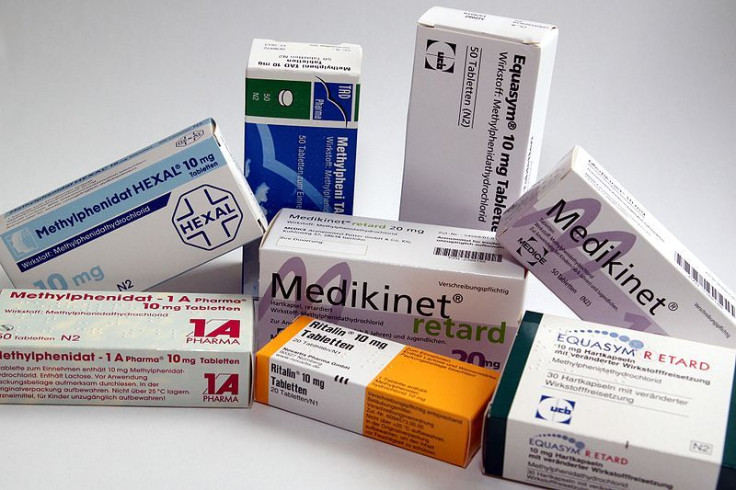Name Brand Drugs Vs Generic Drugs: Does Price Reflect Effectiveness Rate Of Drugs?

While walking down the medicine aisle at the pharmacy, you may find yourself confused. There are two of the same exact versions of every product on the shelf — except one costs 85 percent less than the one next to it.You may find yourself debating whether to dish out the extra cash on the name brand drug or opt for the generic drug that costs much, muchless than the branded pill.
You may decide to reach for the name brand. You may have heard the name from a trusted friend, or maybe your doctor, or maybe you saw the latest ad on TV. Either way, chances are you have positive feelings affiliated with the drug will predispose you to make the
But if you are like most people, you'll probably go with the generics. According to the Food and Drug Administration (FDA), nearly eight out of 10 prescriptions filled in the United States are for generic drugs, and it's likely that these pills will continue to see a growth in popularity over the next few years. As more well-known drugs begin to end their patent life of 20 years, in 2015, generic drugs will begin to flood the market. However, many consumers of name brand drugs fear that the cheaper alternative means lower quality and less pain relief. The FDA assures consumers that name brand drugs and generic drugs are tested under the same regulations, and are required to have the same active ingredient.
In a June 2013 study, researchers looked at over 66 million over-the-counter drug purchases and found an interesting pattern: pharmacists and doctors buy generics 90 percent of the time, while "regular" folks went with generics 70 percent of the time.
If you're one of the 30 percent shelling out the extra cash for brand name drugs, are you getting your money’s worth? Or should you follow the "expert" advice, go generic, and save the extra cash?
Ingredients In Name Brand And Generic Drugs
The FDA requires generic drugs to have the same active ingredient, strength, dosage form, and method of consumption (i.e., how the drug is taken into the body) as the name brand version. Generic drugs must meet all aspects as the name brand drug in order to be approved by the administration for public consumption.
However, a generic drug does not need to have the same inactive ingredients as their costly counterparts. The inactive ingredients can be derived from food products, fillers, and coloring agents and can differ between various forms of the medication: strength, dosage form, and even manufacturer. For example, amoxicillin, an antibiotic, is produced by 31 different manufacturers and repackers, says Kidswithfoodallergies.com. These manufacturers can make different strengths of the antibiotic in chewable tablets, regular tablets, and capsules, all of which may have varying inactive ingredients.
Inactive ingredients also vary within the same name brand product depending on the dosage. A 10 milligram (mg) tablet of Singular contains lactose as one of the ingredients, while a 4 mg tablet of a Singular contains mannitol and aspartame, but does not include lactose.
Testing and Approving Generic Drugs
In order for generic drugs to hit the market, the manufacturer of the drug must prove to the FDA that it's the same as the brand name drug. The manufacturing, packaging, and testing sites of these generic drugs are judged under the same criteria as the brand name drugs, and must meet the same specifications. The FDA says a good quantity of the generic drugs are even made in the same manufacturing plants as their expensive counterparts.
The two drugs must work exactly the same on the human body. “As long as the medication is stored at room temperature and away from heat, humidity, and cold, generic medications and their name brand counterparts should work exactly the same,” said Nicole Gattas, Pharm.D., BCPS, assistant professor of pharmacy practice at St. Louis College of Pharmacy to Medical Daily. The FDA reviews and tests the generic over-the-counter (OTC) and prescription medication to make sure they work the same way in the body.
To test whether the generic drug is just as effective as the name brand, the amount of the drug in the bloodstream is measured to see if it matches up to the same levels found when the patient uses the costly alternative.
In a 2008 study published in the Journal of the American Medical Association, researchers examined the results of 38 clinical studies that compared the effectiveness of generic drugs to name brand drugs for treating cardiovascular disease. The comparative analysis of the clinical trials that took place in January 1984 to August 2008 did not show evidence that name brand drugs were more effective than generic drugs in cardiovascular disease treatment.
Read More: FDA To Require Generic Drugmakers To Update Warning Labels
Difference In Absorption
While name brand drugs and generic drugs are practically identical, they do differ in their level of absorption into the body. The FDA says based on human studies, the average difference in absorption between the two versions of a given drug was 3.5 percent, where some generics absorbed more or some less. The 3.5 percent difference is deemed to be acceptable by the administration and can even be found in a comparison between a name brand drug tested against the same name brand drug with a different dosage, like Singular. The slight difference in absorption is not medically important, claims the FDA.
The Reason Why Generic Drugs Less Expensive
You may be asking, if generic drugs and name brand drugs are the same, then why is there an 85 percent price difference between the two?
Unlike name brand drugs, generic companies do not need to spend much money on drug research and development, clinical trials, marketing, and advertising, says Mayo Clinic. Once the patent and sales rights of the name brand drugs expire, the generic drugs are given the green light to enter the market.
Choosing Generics
If you want to opt for a cheaper alternative, you can talk to your doctor and ask if there is a generic drug they can prescribe that is available for your particular ailment.
However — particularly when purchasing over-the-counter drugs — make sure that there is an EXACT generic available. “If you are looking for generic Tylenol, also known as acetaminophen, make sure you get the correct product; don't accept a generic that has other or additional ingredients,” Gattas advises.
If there is no exact generic available for a drug, it is best to talk to your pharmacist to decide what is the best option for you.



























